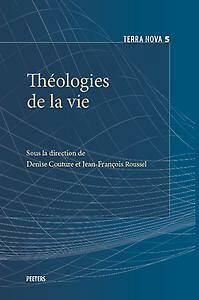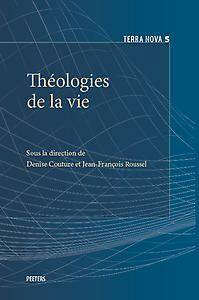
Bedankt voor het vertrouwen het afgelopen jaar! Om jou te bedanken bieden we GRATIS verzending (in België) aan op alles gedurende de hele maand januari.
- Afhalen na 1 uur in een winkel met voorraad
- In januari gratis thuislevering in België
- Ruim aanbod met 7 miljoen producten
Bedankt voor het vertrouwen het afgelopen jaar! Om jou te bedanken bieden we GRATIS verzending (in België) aan op alles gedurende de hele maand januari.
- Afhalen na 1 uur in een winkel met voorraad
- In januari gratis thuislevering in België
- Ruim aanbod met 7 miljoen producten
Zoeken
Omschrijving
English summary: Today our relationship to life is one of rapid transformation. In the midst of an ecological crisis, life is exposed to multiple threats, while a non-anthropocentric cosmology emerges that manifests the interdependent relationships between the human and the non-human. At the same time, life becomes an object of management, a fact particularly highlighted in end-of-life care and the institutionalization of euthanasia. This collection presents Christian theologies that place life/Life at the center of their elaborations. It brings together analyses first presented at the 2014 Congress of the Canadian Theological Society whose theme was "Life: Theological Issues. Think, heal, celebrate life." It is divided into three sections: theologies of contemporary life, readings from biblical and Christian sources, and theological ethics of the end of life. French description: Aujourd'hui le rapport a la vie est transformation rapide. En pleine crise ecologique, la vie est exposee a de multiples menaces, tandis qu'emerge une cosmologie non anthropocentrique, qui manifeste les relations d'interdependance entre l'humain et le non-humain. Simultanement, la vie devient un objet de gestion (biopouvoir), un fait particulierement mis en evidence dans les soins de fin de vie et l'institutionnalisation de l'euthanasie. Enfin, maintes pensees de l'hemisphere Sud placent la vie des pauvres comme referent premier de toute ethique. Ce recueil presente des theologies chretiennes qui placent la vie/la Vie au centre de leur elaboration. Il rassemble des analyses presentees d'abord au congres 2014 de la Societe canadienne de theologie dont le theme etait La vie: enjeux theologiques. Penser, soigner, celebrer la vie. Il se divise en trois sections: theologies de la vie contemporaines; lectures de sources bibliques et chretiennes; et ethique theologique de la fin de vie.
Specificaties
Betrokkenen
- Uitgeverij:
Inhoud
- Aantal bladzijden:
- 162
- Taal:
- Frans
- Reeks:
- Reeksnummer:
- nr. 5
Eigenschappen
- Productcode (EAN):
- 9789042935112
- Verschijningsdatum:
- 10/07/2018
- Uitvoering:
- Paperback
- Formaat:
- Trade paperback (VS)
- Gewicht:
- 353 g

Alleen bij Standaard Boekhandel
+ 76 punten op je klantenkaart van Standaard Boekhandel
Beoordelingen
We publiceren alleen reviews die voldoen aan de voorwaarden voor reviews. Bekijk onze voorwaarden voor reviews.








